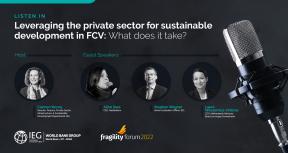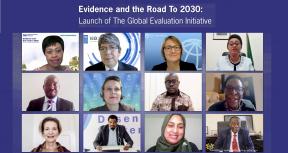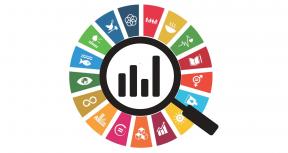Our work focuses on what the World Bank Group delivers and achieves in partnership with its client countries. Evaluations published during 2016 covered the support that the World Bank Group provides to groups of client countries, the WBG’s work on issues that affect how inclusive growth is such jobs and industrial competitiveness, and the WBG’s support to human development and the environment.
Below are the 10 most popular IEG reports, posts, and evaluations from 2016:

Supporting Transformational Change for Poverty Reduction and Shared Prosperity
Transformational engagements are a critical pillar of the 2013 World Bank Group's strategy for achieving its twin goals of extreme poverty elimination and shared prosperity. The Independent Evaluation Group has reviewed existing evaluative evidence for a diverse group of Bank Group interventions to understand the mechanisms and conditions for transformational engagements and to distill lessons and implications for the World Bank Group if it wants to rely on such engagements to more effectively pursue its goals.

Influencing Change through Evaluation: What is the Theory of Change?
In the case of the World Bank Group, IEG have seen a correlation in World Bank Group projects between strong results-based management (results frameworks, M&E, work quality at entry and during supervision) and good outcome ratings. What explains that correlation? Does the theory of change apply to our work? If so, how?

World Bank Group Engagement in Small States
This clustered Country Program Evaluation (CPE) concerns small states (defined as those that have a population of less than 1.5 million) and is the second in a new IEG product series. Though small states differ widely, they share several challenges, including those of strengthening their resilience to economic and natural disaster-related shocks and of remaining competitive to generate vigorous economic growth.

Industrial Competitiveness and Jobs
Industry competitiveness can be enhanced through several different approaches including economy wide, industry specific, or a mix of economy wide with industry specific. This evaluation focuses on industry specific support and on four industries - agriculture, manufacturing, tourism, and information and communication technology.

World Bank Group Engagement in Resource-Rich Developing Countries
There is strong learning potential in looking across a group of countries that have one common characteristic. IEG has looked at four countries that have rich endowment with and dependence on non-renewable natural resources: the Plurinational State of Bolivia, Kazakhstan, Mongolia, and Zambia. These countries are otherwise fairly heterogeneous in terms of geographic location, income levels, and depth of dialogue with the World Bank Group.

Program for Results: An Early Stage Assessment of the Process and Effects of a New Lending Instrument
This evaluation assesses the early experience with the design and implementation of Program for Results (PforR) operations and identifies lessons and recommendations to strengthen this new instrument.

World Bank Group Engagement in Situations of Fragility, Conflict, and Violence
The prevalence of incidents of violent conflict in middle-income countries (MICs) today has meant that the development community's perception of conflict and violence is no longer primarily associated with low-income countries. This evaluation follows the recent evaluation of World Bank Group activities in low-income countries classified as fragile and conflict-affected (FCS) to focus on countries that are not classified as FCS and experiencing localized or externally imposed situations of fragility, conflict, and violence (FCV).

Results and Performance of the World Bank Group (RAP) 2015
The report also examines how effectively the World Bank Group addressed current and emerging development challenges, as well as evaluates World Bank Group's portfolio, country programs, and system for monitoring the implementation of IEG's recommendations. This year's RAP focuses on gender integration in World Bank Group operations.

Why IDA Matters and How to Realize its Full Potential - An Evaluator's Take
Is the World Bank Group doing enough in IDA countries and what lessons can we draw from the Bank Group’s performance to date?






Add new comment